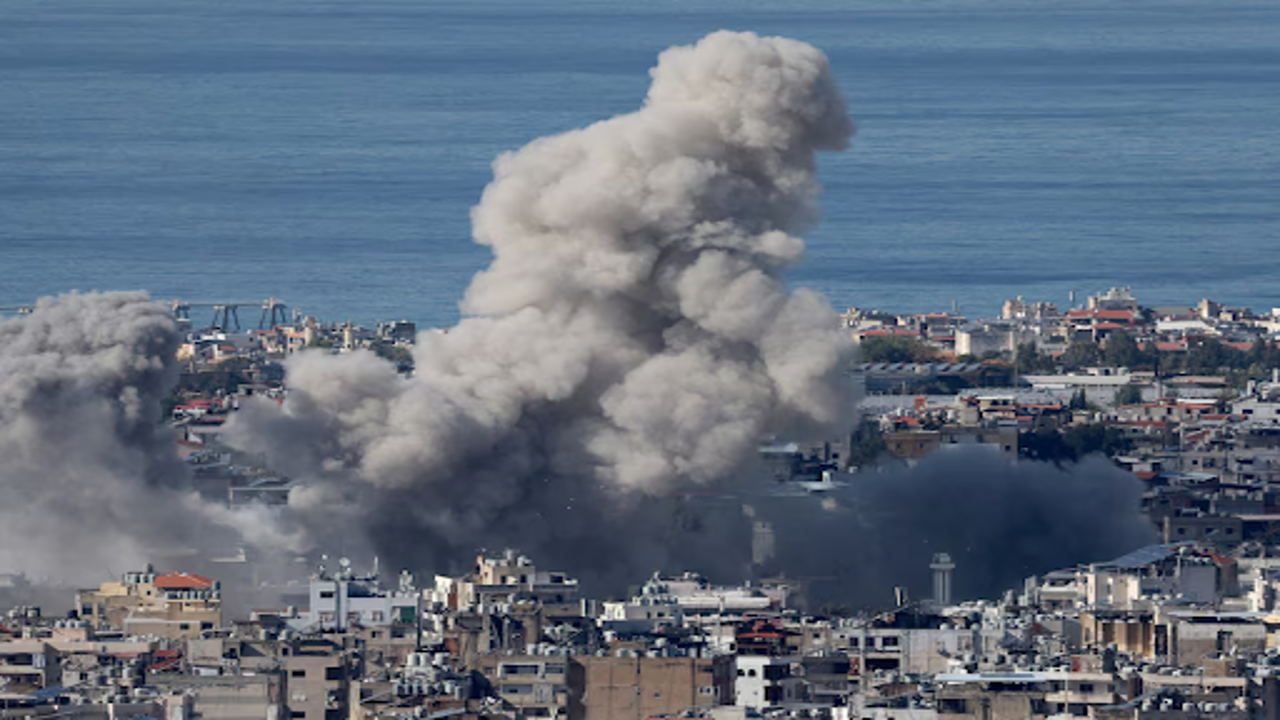
Thick smoke rises above the southern suburbs of Beirut following an Israeli airstrike, reflecting the ongoing clashes between Hezbollah and Israeli forces. The scene was visible from Baabda, Lebanon, on November 26, 2024. Reuters
A ceasefire agreement between Israel and Hezbollah, brokered by the United States and France, is set to take effect on Wednesday. This deal aims to end the deadly conflict along the Israeli-Lebanese border, which erupted following last year’s Gaza war and has since claimed thousands of lives. U.S. President Joe Biden confirmed the agreement after Israel’s security cabinet approved it with a strong majority.
In his remarks, Biden emphasized the significance of the truce, calling it a “permanent cessation of hostilities.” He assured that Hezbollah and other groups would not be allowed to threaten Israel’s security again. As part of the agreement, Israel will withdraw its forces from the border area over the next 60 days, while Lebanon’s army will take charge to prevent Hezbollah from rebuilding its infrastructure. Biden also expressed hope that civilians from both sides could soon return to their homes safely.
French President Emmanuel Macron welcomed the deal, describing it as the result of months of diplomatic efforts with Israeli and Lebanese authorities. Lebanon’s caretaker Prime Minister Najib Mikati also supported the agreement, and the Lebanese army is preparing to deploy at least 5,000 troops in southern Lebanon as Israeli forces pull back.
Men gather at a wrecked site in Beirut's southern suburbs after Israeli airstrikes, highlighting the continuing conflict between Hezbollah and Israeli forces in Lebanon on November 26, 2024. Reuters
Israeli Prime Minister Benjamin Netanyahu expressed readiness to enforce the ceasefire, warning of a decisive response to any violations by Hezbollah. He highlighted the benefits of the truce, including the opportunity to focus on threats from Iran, replenish military supplies, and isolate Hamas, the group responsible for last year’s Gaza attack. Netanyahu claimed that Hezbollah had been significantly weakened during the conflict, with its leadership and infrastructure heavily damaged.
The United Nations Special Coordinator for Lebanon praised the ceasefire, urging all parties to consolidate the progress through concrete actions. A senior U.S. official revealed that the U.S. and France, along with the UN peacekeeping force in Lebanon, will monitor the ceasefire’s implementation. While U.S. combat troops will not be deployed, the coalition aims to deter violations and maintain peace in the region.
Israeli soldiers inspect a damaged house following reports of projectiles crossing into Israel from Lebanon during ongoing clashes between Hezbollah and Israeli forces on November 26, 2024. Reuters
Despite the agreement, hostilities persisted up to the final hours. Israel intensified airstrikes in Beirut and other areas of Lebanon, targeting Hezbollah’s financial infrastructure. Meanwhile, Hezbollah continued firing rockets into Israel. Civilians on both sides expressed hope for lasting peace, though skepticism remains, with some Israeli leaders opposing the deal and calling for stricter security measures.
A recent poll indicated mixed opinions in Israel, with 37% supporting the ceasefire and 32% against it. Critics, including some government officials, argue that the agreement doesn’t sufficiently protect Israeli border towns. In contrast, Lebanese authorities have emphasized the importance of displaced civilians returning to southern Lebanon as a key condition of the truce.
As the ceasefire takes effect, the region watches closely, hoping this agreement will mark the beginning of a more stable and peaceful era.















